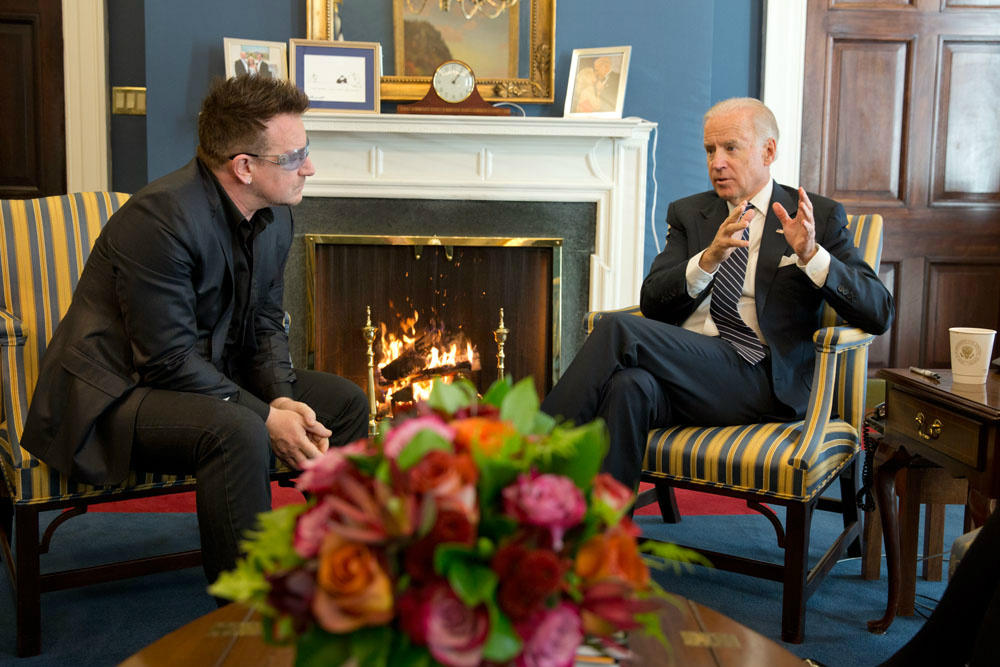
This week, Bono is storming through DC. He delivered a speech at an event at Georgetown on Monday, met with Vice President Biden yesterday, is holding a webcast with World Bank President Jim Yong Kim today and is meeting with lawmakers everywhere in between. Bono’s worldwide efforts over the years have made him a well-know figure in celebrity diplomacy; but, the concept of celebrity diplomacy is nothing new. Celebrities have represented organizations as ambassadors for decades. While some might scoff at the idea of employing celebrities as champions for important issues, it is easy to see where the draw comes from – attention. If managed correctly, celebrity diplomacy is a great tool for engaging audiences.
The Draw of Celebrity “Endorsements”
Celebrity diplomacy can be an incredibly effective resource because of celebrities’ ability to garner media attention. Celebrity gossip and other entertainment-focused soft news is far-reaching and widely consumed. While some may view the magazines next to the grocery checkout or television talk shows as strange places to go for news, many Americans look to these sources. As it relates to diplomacy, this means that celebrities can often reach a wider audience than politicians or policy experts, and can engage people in topics that they may not ordinarily seek out or follow.
Detractors might argue that the fleeting focus on whatever issue a celebrity is peddling does not necessarily translate into action and does little more than inflate the celebrity’s ego. If they care so much, why don’t they just donate their millions and leave the rest of us alone? This view is all wrong. Many of the programs celebrities support deal with universal issues that require broad changes in policy and attitudes, in addition to funding. It might be true that the temporary spotlight on poverty or AIDS that a celebrity brings may not spur everyone to act. Still, a conversation is started and many people might act, or maybe just start thinking differently.
Politicians Like Celebrities Too
Whether they feel silly admitting it or not, politicians like celebrities too. Members of Congress and their staff can pretend that a celebrity making the rounds on the Hill is of no more interest to them than any other group promoting their issues – they are likely lying. I worked on the Hill for two years and I know how the atmosphere is when someone like Angelina Jolie comes to the Hill – it is not the same as if the head of Refugees International comes to discuss the same issues; and I am sure that you can find more than one staffer roaming the halls a little more than usual this week trying to catch a glimpse of Bono. Celebrities, for better or worse, also have an easier time catching the attention of politicians than policy experts or issue advocates. Case in point – Bono met with Vice President Biden.
Still, liking celebrities is not the same as taking them seriously or listening to them. InterMedia, with support from the Bill and Melinda Gates Foundation, released a report entitled Government Decision-Makers’ Perceptions of Celebrities as Champions for International Development, which discusses pros and cons of celebrity diplomacy. The report cites celebrities’ ability to raise the profile of issues, but also mentions that overall, lawmakers are skeptical of celebrity involvement. Successful celebrity diplomats do not rely on their star power alone – they understand the issues that they advocate for and can engage in conversation.
In the end, celebrity diplomacy is much like any other form of diplomacy – it relies on legitimacy and credibility. If celebrities are genuinely interested in the issues, that will come through; otherwise, it may just be PR fluff.

